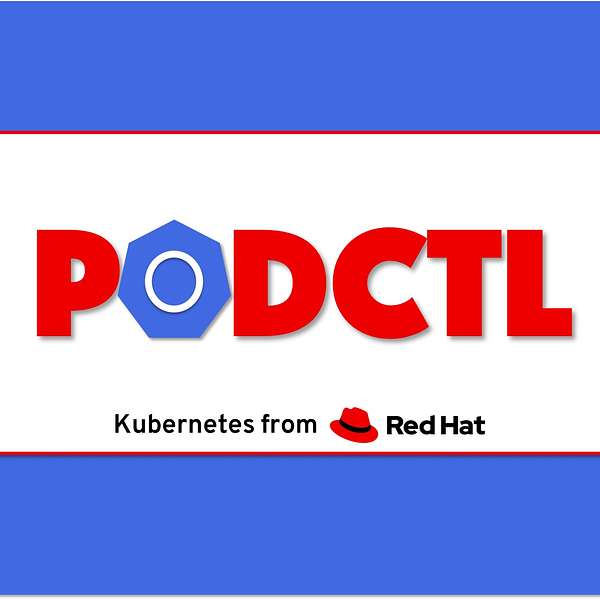
PodCTL - Enterprise Kubernetes
PodCTL - Enterprise Kubernetes
OpenShift 4 Architecture Overview
Show: 61
Show Overview: Brian talks with Clayton Coleman (@smarterclayton) and Derek Carr (@derekwaynecarr), Technical Leads of Red Hat OpenShift, about the upcoming architectural changes in version 4.
Show Notes:
- Try OpenShift 4 - http://try.openshift.com
- OpenShift 4 - Features, Functions, Future (Commons Gathering KubeCon 2018) - https://www.youtube.com/watch?v=-xJIvBpvEeE
- The Modern Software Platform - https://blog.openshift.com/the-modern-software-platform/
Topic 1 - Welcome back to the show. Let’s talk about some of the architectural concepts that will exist in OpenShift 4, and why decisions were made.
Topic 2 - OpenShift has always been a flexible/composable/modular platform. How does that evolve in OpenShift 4 (e.g. Operators, Platform + OS, etc.)?
Topic 3 - OpenShift has evolved since the early 3.x days, when a lot of necessary things weren’t “Kubernetes embedded” (install/upgrade tools, monitoring, scanning, visualization of resources, etc.). OpenShift has been moving to adopt the Kubernetes native elements as they mature (e.g. Prometheus). Can you talk about some of the new Kubernetes native capabilities coming in OpenShift 4 that people should start looking into? (e.g. CRI-O, Cluster-Version-Operator, Machine APIs)
Topic 4 - Let’s come back to the discussion of Operators. We heard alot about Operators for applications (e.g. databases), but are there uses for Operators for things that would be considered more platform-centric (e.g. storage, logging, service mesh, etc.)?
Topic 5 - There are some things happening in the public cloud that make it easier to manage nodes and scaling of nodes. Any interesting stuff coming to OpenShift 4 to help make those elements easier to manage?
Feedback?
Email: PodCTL at gmail dot com
Twitter: @PodCTL
Web: http://podctl.com